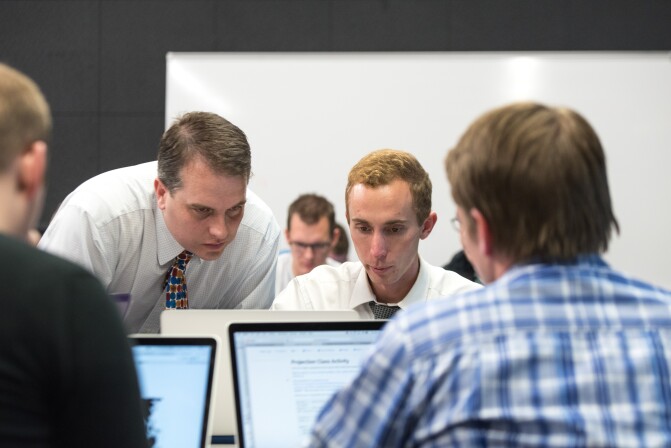
Become a Data Scientist
A data scientist is a programmer, statistician, and communicator that plays a crucial part in the world of technology.
Both large and small companies collect and store massive amounts of data. They need data scientists that can provide actionable insight from the data. This degree prepares students with skills in core programming languages, machine learning, statistics, and more.
Both large and small companies collect and store massive amounts of data. They need data scientists that can provide actionable insight from the data. This degree prepares students with skills in core programming languages, machine learning, statistics, and more.
More Information
Data science prepares students for Data Analysis and Technology based careers.
"BYU-I’s data science program is business relevant. My employer was impressed that I had started learning the Python, R, and SQL languages for applications with statistics and machine learning methods. Also, the project-based classes gave me a mindset for innovation, personal learning, and actionable presentation. Thanks, BYU-I!"
ANDREW W.,
BYU-I GRADUATE
Highlighted Career Paths
Graduates with a degree in Data Science have a wide array of rewarding careers before them. Check out some of the top careers students get with this degree or explore more career options in I-Plan.
Data Scientist
A data scientist translates industry-specific needs into a data question, creates predictive models to answer questions, and provide clear insights into the findings for actionable business decisions. Data scientists are the bridge between the programming and implementation of data science, the theory of data science, and the business implications of data.
Data Analysts
A data analyst uses data to provide reports and visuals to explain data-driven insights. Data analysts help people from across the company understand specific queries with charts, and they need a solid grasp of data manipulation and data communication.
Business Analysts
A business analyst is a type of data analyst more concerned with the business implications of data and the actions that should result. Business analysts work more directly within different business sections of a company and may not be in a group with other business analysts and are interested in questions like, "Should the company invest more in project X or project Y?"
Getting Started
If you are interested in Data Science, start with one of the following courses:



